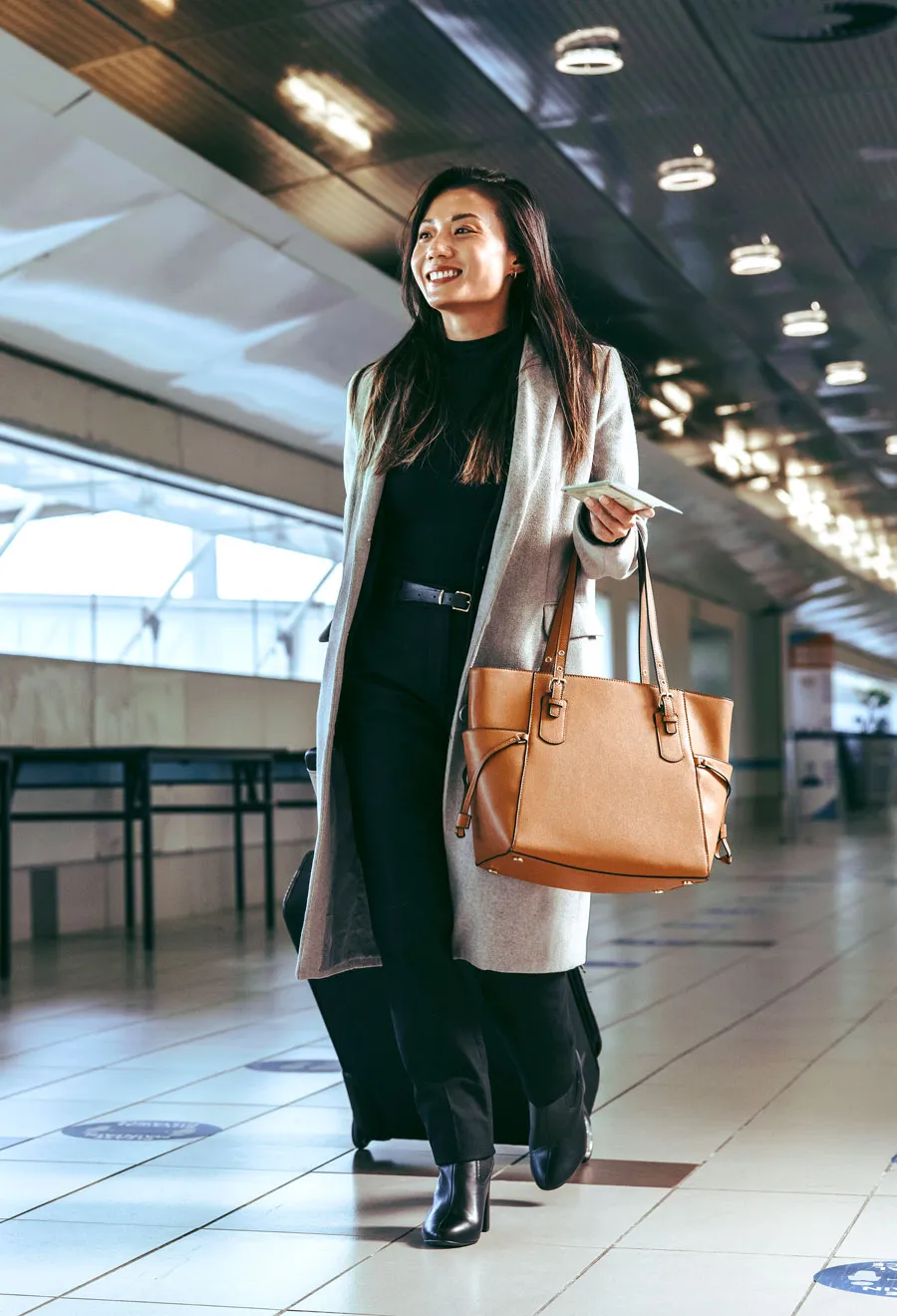Whether you’re a first-time flyer, an infrequent traveler, or a certified jet-setter, the world of air travel can be a confusing one. With so many moving parts, air travel is always unpredictable, and even the savviest passengers can find themselves in an unfamiliar situation — from the TSA’s changing rules to flight delays, overbooking, and rules for cancellations. Luckily, the U.S. Department of Transportation has a helpful dashboard of air travel tips that provide guidance to travelers’ most common questions. We’re expanding on their advice with expert guidance on 10 of the most frequently asked questions by airline passengers.
1. How Can I Get the Best Airfare?
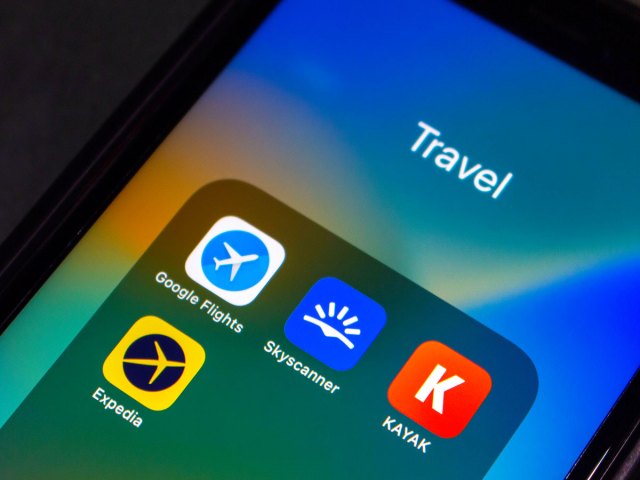
The first thing most travelers want to know is how to score cheap flights. The DOT has some great practical tips — be flexible with your dates, plan well in advance, compare different airlines — but there’s one site we always recommend to find the best deals: Google Flights. The search engine displays dozens of flight options from nearly every airline, and sends you to the airline’s site to complete your booking.
You don’t even need a destination in mind or a specific departure date to find deals with Google Flights. On the homepage, you’ll see a map suggesting trips based on price, or you can search for a two-week trip in October or a weeklong trip anytime in, say, the next six months. Once you’ve settled on a destination, Google Flights also provides a handy price history and analysis on the results page and a recommended window for the cheapest time to book based on similar trips.
Also keep in mind the DOT’s 24-hour cancellation rule: If you change your mind or find a better fare within 24 hours, airlines are required to let you cancel for any reason for a full refund to your original method of payment, as long as you’re booking at least seven days before your departure. Even if it’s been more than a day, depending on your fare, you may be able to rebook your flight if the price drops and retain a credit to use later — check out our helpful guide.
2. How Can I Avoid Baggage Fees?
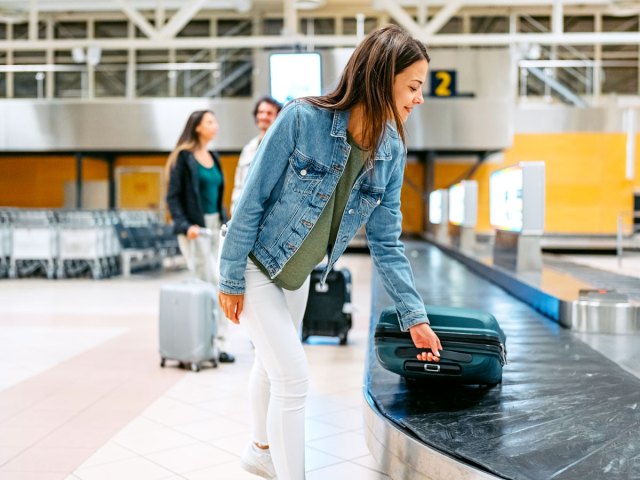
Despite their unpopularity, baggage fees likely aren’t going anywhere soon. These dreaded fees have become a major revenue driver for airlines. In 2025, travelers on U.S. domestic flights can expect to pay $35 to $45 on most major airlines for their first and second checked bags, respectively. But bags often cost more on ultra-low-cost budget carriers such as Spirit and Frontier, and JetBlue has even introduced surge pricing, with higher fees during peak demand periods. Fees can also vary considerably for long-haul international flights, so be sure to check your airline’s website.
Wondering if you can skip those fees altogether? Beyond stuffing more in your carry-on or flying enough to acquire elite status, most major airlines offer co-branded credit cards that waive baggage fees for the cardholder and up to nine passengers traveling together on the same reservation. Though these credit cards typically charge an annual fee, the savings on bag fees for even just one or two trips could be substantial.
3. What Should I Avoid Packing in My Checked Bag?
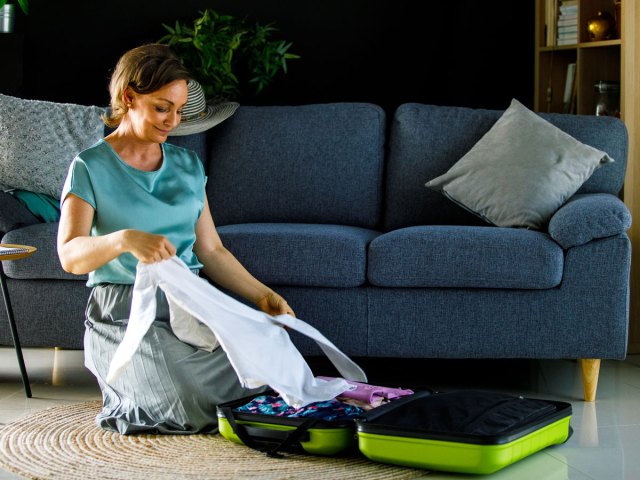
When packing, there are a few important rules when it comes to the question of checked vs. carry-on luggage. For questions about specific items, especially if you’re carrying anything unusual, your best resource is the TSA’s What Can I Bring? webpage. In general, you’ll want to avoid packing important travel documents, valuables, and essential medicines in checked luggage, in case your bag gets delayed or lost in transit. Certain electronics, such as lithium batteries, and personal care items, including cordless curling irons, are also subject to new bans in checked bags, so be sure to read up on current TSA policies before heading to the airport.
4. What Items Should I Always Pack in My Carry-On?
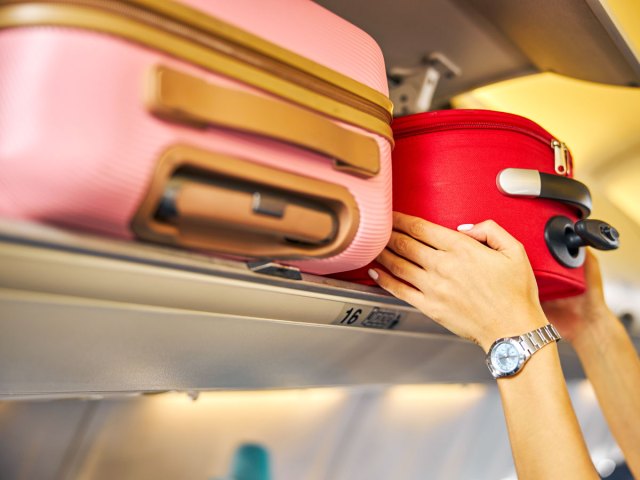
While some items are not permitted in carry-ons, like liquids over 3 ounces, others you should always keep in the cabin with you. There’s always a small risk that the airline can mishandle your bag, leaving you at your destination without essential items. Be sure to pack your travel documents, medications, and a change of clothes, but also consider items that will make you more comfortable on long flights or in case of delays. Think: snacks, a refillable water bottle to stay hydrated, a phone charger, and anything that might help you fall asleep on a plane, such as an eye mask or noise-canceling headphones.
5. How Early Should I Arrive at the Airport?
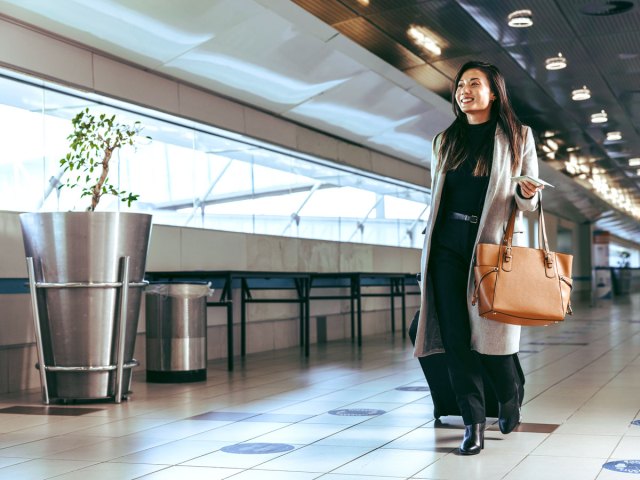
This depends on a few different factors. In general, airlines and airports alike recommend arriving at least two hours before the departure of a domestic flight and three hours before an international flight. If you’re traveling light, departing from a less busy airport, or have TSA PreCheck, you probably don’t need to arrive quite so early, but it’s always a good idea to give yourself a healthy buffer. Keep in mind that a number of things can unexpectedly slow you down, from hotel or car rental shuttle delays to traffic congestion around the airport. And if you’re flying internationally through an airport with preclearance, you’ll go through customs before you board your flight, so be sure to budget extra time for those lines.
If you find yourself running late and are planning to check a bag, you should be aware of the baggage cutoff times found on each airline’s website. Delta, for example, has a minimum check-in time of 40 to 45 minutes for domestic flights and one hour for international flights. On the other hand, you don’t want to arrive at the airport too early, as most airlines won’t begin accepting baggage until four hours before your scheduled departure.
6. How Can I Get Through TSA Security Faster?
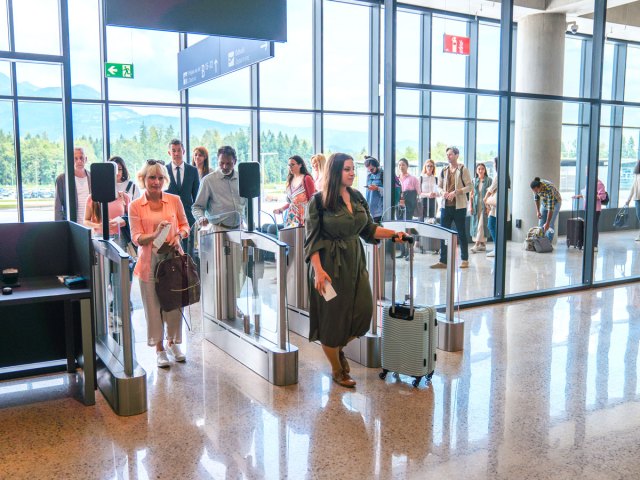
The TSA screening process isn’t anyone’s favorite part of a travel day, and with record numbers of passengers taking to the skies, you should be prepared to wait in line. That said, there are a number of ways you can get through security faster. Our best piece of advice is to sign up for one of the TSA’s Trusted Traveler Programs if you’re eligible. According to the TSA, 99% of PreCheck passengers wait 10 minutes or less. Also note that children ages 17 and under can go through the TSA PreCheck lane with their enrolled parents, as long as they are traveling on the same reservation.
Next, be sure to read through these 10 essential tips the TSA wants you to know. There’s plenty of good advice in there, from guidance on confusing carry-on rules surrounding foods and medications to tips on how to check estimated wait times.
7. What Are My Rights if My Flight Is Delayed or Canceled?
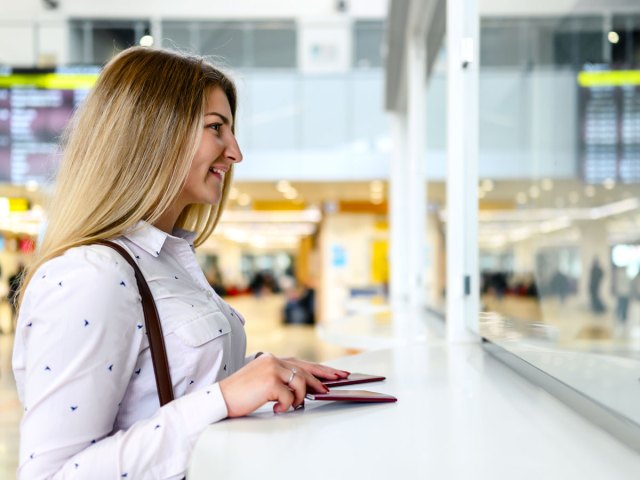
We all hope for an on-time departure, but for many travelers, a flight delay — or worse, a cancellation — is unfortunately a common occurrence. If that happens, what are your rights?
While individual airlines have their own procedures and policies regarding delayed flights, there remains no federal requirement to offer compensation or assistance. The DOT does have a helpful delay and cancellation dashboard, which lays out the commitments the 10 major U.S. airlines make for “controllable delays.” These types of delays are deemed within an airline’s control, such as crew scheduling issues or cabin cleaning delays, versus uncontrollable events such as weather or air traffic control staffing shortages.
In the event of a controllable delay or cancellation, all major U.S. airlines will endeavor to rebook affected passengers on one of their later flights at no additional cost, and some will also look for availability on alternative airlines (at no extra cost), which may help you get to your destination sooner. If a delay lasts more than three hours, every major U.S. airline will also provide something to eat or give out a meal voucher that can be used in the airport. Nine of the ten will try to arrange complimentary overnight accommodation once they know the flight won’t depart until the following day — and provide the ground transportation to get you there free of charge.
If the alternative arrangements provided by the airline don’t work for you, you also have the right to a refund, thanks to new rules implemented in 2024. This applies if your flight is changed by three or more hours, regardless if the reason for the delay was within the airline’s control or not.
8. What If I Miss My Connecting Flight?
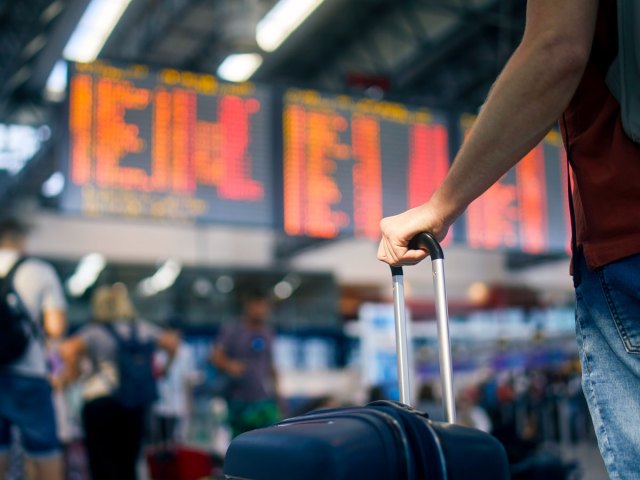
If your first flight is delayed or canceled, causing you to miss the next leg, it can result in a lot of unexpected costs, including overnight accommodation, meals, and onward transportation. As stated above, the airline isn’t required to reaccommodate you for circumstances outside their control, such as weather, which could leave you on the hook for paying those expenses.
If flying nonstop isn’t an option, plan your layovers carefully. Start by always booking a through ticket, which means that your entire journey, even if it involves multiple connecting flights or airlines, falls under a single itinerary. That way, if the inbound leg is canceled or delayed, forcing you to miss your next flight, it will typically be the airline’s responsibility to ensure you make it to your final destination.
Airlines set what they call minimum connecting times (MCTs), but even sticking to this is no guarantee. Realistically, the time you should allow between flights depends on a range of factors. These include whether the connecting airport is large or small, the size of the plane for your first flight (because of the time it takes to disembark), whether your connecting flight departs from a different terminal, and whether you need to recheck bags, clear security, or pass through immigration.
9. Can the Airline Overbook My Flight?
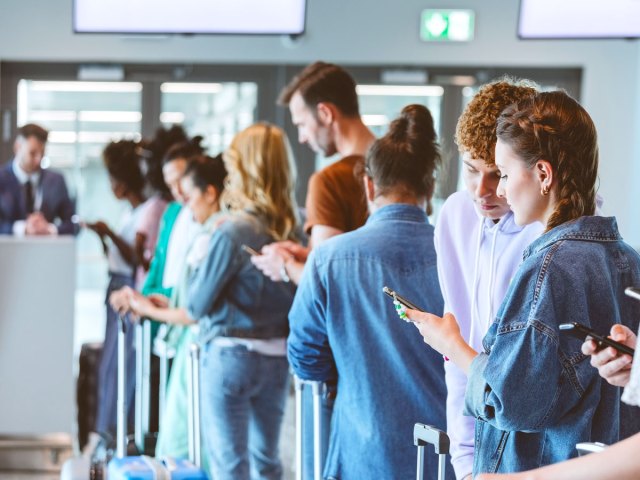
Overbooking — officially known as “denied boarding” — is a strategy used by airlines to make up for anticipated no-show passengers on a flight. In some cases, if there are not enough volunteers willing to take a later flight, airlines may involuntarily deny boarding to — or “bump” — some passengers. And though it can be an annoyance for travelers, it’s perfectly legal.
If you find yourself in an involuntary denied boarding scenario, know your rights. Airlines must follow the DOT’s highly specific rules for involuntarily bumping passengers. The compensation is determined by ticket price, the duration of delays resulting from denied boarding, and whether the flight is a domestic or international flight from the U.S. For domestic flights, airlines are obligated to compensate passengers 200% of their one-way ticket value if their arrival is delayed one to two hours beyond the original schedule. (Airlines are, however, allowed to cap this compensation at $775.) If the delay extends beyond two hours, the compensation increases to 400% of the one-way ticket price; airlines can cap that compensation at $1,550.
Remember, there is no legal limit to what you can negotiate from the airline. After a 2017 viral incident in which a passenger was forcibly dragged off a plane, airlines are increasingly willing to shell out thousands of dollars in compensation to avoid involuntarily bumping passengers and creating bad publicity. So, if your travel plans are flexible and you’re interested in cashing in to switch your flight, see how much the airline is willing to pay.
10. What if the Airline Loses My Bag?
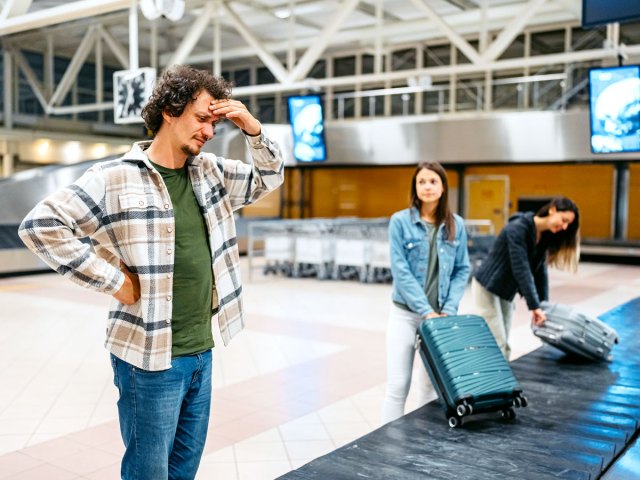
In 2024, over 2 million air travelers had checked bags that were lost, delayed, or damaged on domestic flights in the U.S., according to the Bureau of Transportation Statistics (BTS). While this is a tiny fraction of the total number of bags handled, that won’t come as much comfort if your luggage is one of the unlucky few that gets delayed or lost.
If all the bags have come down the carousel and yours is still missing, you shouldn’t leave the airport until you have spoken to an airline representative, filed a claim, and received a claim number. This allows you to check on the airline’s progress in finding your luggage. Some airlines offer amenity kits to travelers with lost luggage (with essentials such as toothpaste, a toothbrush, hand sanitizer, etc.), so be sure to ask about those free items.
There is also an important distinction between “lost” and “delayed” luggage. Many airlines don’t consider a bag lost until several days after your flight (usually between five and 21 days, depending on the airline). But according to the U.S. Department of Transportation, airlines must compensate travelers for “reasonable, verifiable, and actual incidental expenses” incurred due to delayed baggage. (It doesn’t have to be considered lost yet.) Be sure to keep your receipts when purchasing these replacement items, as you will need to submit them to the airline for reimbursement.
Oftentimes when traveling, it’s advantageous to take matters into your own hands when possible. Thankfully, there’s an affordable gadget that can help track down your missing bags and provide peace of mind on your next trip: the Apple AirTag, a tiny, yet essential device that every jet-setter should own.
More from our network
Daily Passport is part of Inbox Studio, an email-first media company. *Indicates a third-party property.






